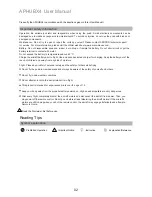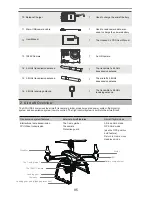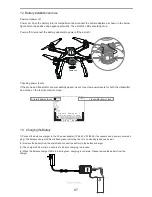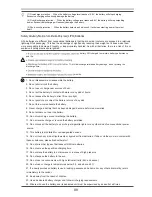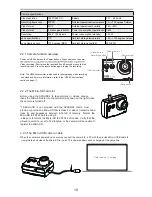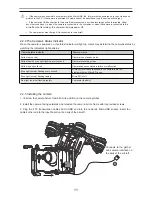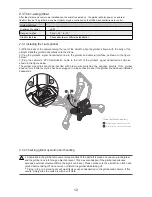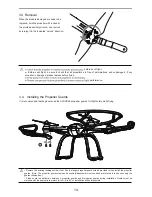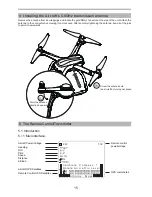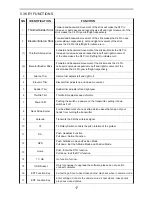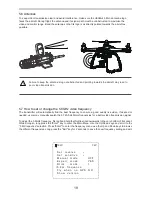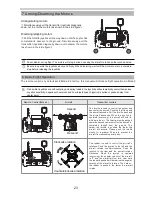
08
Safety Advisory Notice for Lithium-Polymer (LIPO) Batteries
1. Do not disassemble or reassemble the battery.
2. Do not short-circuit the battery.
3. Do not use or charge near sources of heat.
4. Do not put the battery in contact with water or any kind of liquid.
5. Do not expose the battery to direct fire or sunlight.
6. Do not puncture or subject the battery to force of any kind.
7. Do not throw or manhandle the battery.
8. Never charge a battery that has been damaged, become deformed or swelled.
9. Do not solder on or near the battery.
10. Do not overcharge or over discharge the battery.
11. Do not reverse charge or reverse the battery polarities.
12. Do not connect the battery to a car charger/cigarette lighter or any other kind of unconventional power
source.
13. This battery is prohibited for non-designated devices.
14. Do not touch any kind of liquid waste or byproduct from batteries. If skin or clothes come in contact with
these substances, please flush with water!
15. Do not mix other types of batteries with lithium batteries.
16. Do not exceed the specified charging time.
17. Do not place the battery in a microwave or in areas of high pressure.
18. Do not expose the battery to the sun.
19. Do not use in environments with high static electricity (64V and above).
20. Do not use or charge in temperatures below 0 and above 45 .
21. If a newly purchased battery is used, leaking, possesses a bad smell or any other abnormality, return
immediately to the vendor.
22. Keep away from the reach of children.
23. Use a dedicated battery charger and follow all charging requirements.
24. Minors who use the battery and its dedicated unit must be supervised by an adult at all times.
LiPo batteries are different from conventional batteries in that their chemical contents are encased in a relatively
lightweight foil packaging. This has the advantage of significantly reducing their weight but it does make them
more susceptible to damage if roughly or inappropriately handled. As with all batteries, there is a risk of fire or
explosion if safety practices are ignored:
(1) Overcharge protection : When the battery voltage level reaches 12.8V, the battery will stop charging.
Excessive charging will seriously damage the battery.
(2) Over-discharge protection : When the battery voltage level reaches 8.4V, the battery will stop outputting
power. Excessive discharging will seriously damage the battery.
(3) Short-circuit protection : When the battery detects a short-circuit, it will stop outputting power to protect
itself.
battery 50% charged to maintain battery performance
and life.
d discharge related battery damage, do not prolong the
discharge time.
months.


